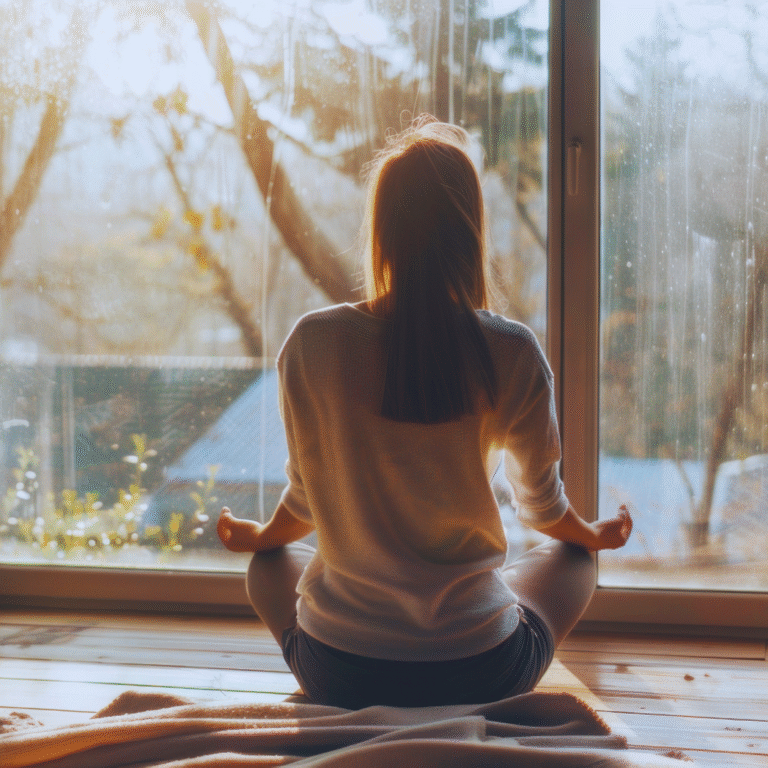Stress is an ever-present challenge in today’s fast-paced world, affecting mental health and overall well-being. Practicing effective relaxation techniques can significantly reduce stress levels and enhance one’s ability to manage it. By incorporating a variety of methods into daily routines, individuals can find relief from the burdens of chronic stress.
The journey towards stress management begins with simple yet powerful techniques that anyone can use. From mindfulness practices to physical activities, these methods not only promote relaxation but also foster resilience in the face of daily pressures. Engaging in self-care is crucial for maintaining mental health, and understanding different relaxation strategies can empower individuals to take control of their stress.
In this blog post, ten practical relaxation techniques are presented, each aimed at improving mental clarity and emotional stability. By exploring these approaches, individuals can discover the tools they need to cultivate a calmer, more balanced life.
Understanding Stress and Its Effects on Health
Stress significantly influences both mental and physical well-being. Recognizing how stress operates and its long-term effects is vital for maintaining health.
The Science of Stress
Stress triggers a physiological response in the body, primarily involving the release of cortisol. This hormone prepares the body for a “fight or flight” reaction. Elevated cortisol levels can enhance focus initially but may lead to negative outcomes if sustained.
When under stress, the heart rate increases, and blood pressure can rise, contributing to cardiovascular strain. Regular exposure to stress can also diminish mental clarity, impacting decision-making and emotional regulation. Furthermore, sleep quality often suffers, exacerbating feelings of fatigue and irritability.
Long-Term Consequences of Chronic Stress
Chronic stress has profound health implications. It is associated with higher risks of heart disease due to persistent elevated blood pressure and strain on blood vessels. Over time, it may also contribute to metabolic issues, increasing the likelihood of diabetes.
Additionally, ongoing stress can impair immune function and disrupt hormonal balance. The cumulative effects might lead to conditions such as anxiety or depression. This highlights the importance of managing stress effectively to safeguard both mental and physical health.
Relaxation Techniques to Combat Stress
Implementing effective relaxation techniques can significantly alleviate stress. Specific methods like deep breathing exercises, progressive muscle relaxation, and mindfulness practices help individuals regain a sense of calm and control.
Deep Breathing Exercises
Deep breathing exercises are simple yet powerful practices that help reduce stress. They focus on slow, deep breaths, activating the body’s relaxation response. Individuals typically inhale deeply through the nose, allowing the abdomen to expand, and then exhale slowly through the mouth.
This process encourages oxygen flow and can reduce feelings of anxiety. Techniques such as the 4-7-8 method, where one inhales for four counts, hold for seven and exhales for eight, are popular. Deep breathing can be done anywhere and at any time, making it a convenient tool for immediate stress relief.
Progressive Muscle Relaxation
Progressive muscle relaxation (PMR) is a technique that involves systematically tensing and relaxing different muscle groups. This method helps individuals recognize the physical tension associated with stress. Sessions typically begin at the feet and work upwards, focusing on one muscle group at a time.
For instance, one might tense the muscles in their feet for five seconds before relaxing them. This technique encourages a noticeable difference between tension and relaxation. PMR can promote overall physical relaxation and is often practiced in a quiet setting to enhance its effectiveness.
Meditation and Mindfulness
Meditation and mindfulness are integral techniques for stress reduction. Mindfulness involves paying attention to the present moment without judgment. Practitioners focus on their breath or bodily sensations, helping to cultivate greater awareness and calm.
Meditation often includes specific practices, such as guided imagery or mantra repetition. Regular practice can lead to reduced stress levels and improved emotional well-being. Individuals may start with short sessions, gradually increasing the duration as they become more comfortable. Combining these practices can enhance their effectiveness in managing stress.
Lifestyle Changes to Support Stress Reduction
Making targeted lifestyle changes can significantly aid in reducing stress levels. Key areas include increasing physical activity, paying attention to nutrition, and improving sleep habits.
The Role of Physical Activity
Physical activity is crucial for stress reduction. Engaging in regular exercise releases endorphins, chemicals in the brain that act as natural painkillers and mood elevators. They enhance a sense of well-being, helping to mitigate stress.
Activities such as walking, jogging, cycling, or swimming can be beneficial. Even short bursts of exercise can have immediate effects on mood. For best results, she should aim for at least 150 minutes of moderate exercise per week.
Also, consider incorporating activities that encourage mindfulness, like yoga or tai chi. These not only improve fitness but also promote relaxation and mental clarity. The combination of movement and mindfulness aids in stress relief.
Nutrition and Stress Relief
Nutrition plays a vital role in managing stress. A balanced diet rich in fruits, vegetables, whole grains, and lean proteins supports both physical health and emotional well-being. Foods high in antioxidants, such as berries and leafy greens, help combat oxidative stress in the body.
It is essential to limit the intake of alcohol and caffeine. Both substances can exacerbate anxiety and disrupt sleep patterns. Instead, she might consider herbal teas or water as revitalizing alternatives. Incorporating omega-3 fatty acids from sources like fish, walnuts, and flaxseeds can positively affect mood. Additionally, snacks that include magnesium, such as dark chocolate and avocados, may help reduce stress levels. Proper nutrition should be a fundamental component of any stress management strategy.
Improving Sleep Habits
Quality sleep is essential for stress reduction. Poor sleeping patterns can heighten anxiety and reduce the body’s ability to cope with stress. Establishing a regular sleep schedule can enhance sleep quality.
Limiting exposure to screens before bedtime helps optimize melatonin production, a hormone critical for sleep regulation. Creating a calming bedtime routine can signal the body that it is time to wind down. Furthermore, the sleep environment should be conducive to rest. She should ensure her bedroom is dark, cool, and quiet. This can also include maintaining a consistent room temperature for restful sleep. However, it can be difficult to achieve if the heating and cooling systems are not working properly. Consider conducting regular maintenance and repairs from a Lansdale PA air conditioning service, or from a place nearby, to ensure your system can maintain an optimal level of temperature round the year, thus preventing sleep disruptions. Furthermore, reducing distractions and prioritizing sleep hygiene promotes deeper, more restorative sleep, aiding overall stress management.
Supplemental Strategies for Enhancing Relaxation
Implementing additional techniques can significantly support relaxation efforts. Key methods include using scents for calm, leveraging social connections, and embracing creativity as an outlet.
Aromatherapy and Essential Oils
Aromatherapy utilizes essential oils extracted from plants to promote relaxation. These oils can be inhaled or applied topically, often diluted with a carrier oil. Lavender, known for its calming properties, is frequently used to reduce anxiety and improve sleep quality.
Users can create a soothing atmosphere by adding a few drops of essential oils to a diffuser or bath. Citrus scents, like lemon and orange, can uplift mood while peppermint invigorates the senses. Incorporating aromatherapy into a daily routine may enhance relaxation and promote overall well-being.
The Power of Social Support
Social support plays a vital role in reducing stress. Engaging with friends or family can provide emotional stability and understanding. Celebrating milestones or discussing challenges fosters a sense of belonging.
Encouraging interactions through regular meet-ups, phone calls, or even virtual gatherings can alleviate feelings of isolation. Maintaining a gratitude journal also complements social connections, as it encourages individuals to reflect on positive relationships and experiences. This practice may lead to increased life satisfaction and a more positive outlook.
Creative Outlets for Stress Management
Engaging in creative activities can effectively manage stress. Hobbies such as adult coloring books, painting, and writing can serve as therapeutic outlets. These activities allow individuals to express emotions and divert attention from stressors.
Journaling provides a way to articulate thoughts and feelings, promoting clarity and emotional release. Furthermore, embracing creativity fosters mindfulness, as it encourages being present in the moment. Integrating creative pursuits into daily routines can enhance relaxation and enrich life experiences.




